
KU Leuven
Founded in 1425, the University of Leuven (KU Leuven) ( www.kuleuven.be ) has been a centre of learning for almost six centuries. Today, it is Belgium’s largest and highest-ranked university as well as one of the oldest and most renowned universities in Europe. As a leading European research university and co-founder of the League of European Research Universities (LERU), KU Leuven offers a wide variety of programmes in English supported by high-quality interdisciplinary research carried out at both the university and its internationally acclaimed hospitals. Boasting an outstanding central location in the heart of Europe, KU Leuven offers a truly international experience, high-quality education, world-class research and cutting-edge innovation. KU Leuven works with a select number of high-quality partner institutions worldwide and stimulates purposeful international mobility and intensive research cooperation. The Faculty of Engineering Technology (FET) gathers all Industrial Sciences programmes offered by the KU Leuven at 7 campuses throughout Flanders. In addition to the faculties of Science, Engineering Science, Bio-engineering Science and Architecture, the Engineering Technology Faculty is one of the five faculties within the KU Leuven's Science, Engineering & Technology Group. The FET ensures that the unique approach and quality of the programmes taught at each of its’ campuses is guaranteed, while bearing in mind common goals and interests. Research is conducted in collaboration with the departments of the Science, Engineering & Technology Group. The faculty of engineering technology organizes degree studies in applied engineering. This means the translation of inventions and fundamental research in to usable technologies. To graduate our applied engineers, we spend a lot of time on practica and lab-sessions, as the engineers need to have hands-on experience when going to industry afterwards. As a big faculty with about 6000 students, it has an extended network of European partners for students and staff exchange (about 100 partnerships) and a network of project partners worldwide.
Website: KU Leuven
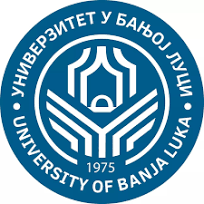
University of Banja Luka
The University of Banja Luka (UBL), established in 1975, is the leading higher education and scientific institution in the Republic of Srpska and the second largest university in Bosnia and Herzegovina. At UBL there are currently around 15 000 students. Most faculties of UBL are placed in two university campuses, situated near the banks of the Vrbas river, near the city centre. UBL consists of 17 faculties: Academy of Arts, Architecture, Economics, Electrical Engineering, Mechanical Engineering, Medicine, Agriculture, Law, Natural Sciences and Mathematics, Technology, Sport, Philosophy, Philology, Forestry, Political Sciences, Mine Engineering, and Security. UBL has 64 study programs at the 1st cycle, 77 at the 2nd and 15 at the 3rd and it is fully committed to the idea of a borderless area for research and knowledge exchange in Europe. Besides the excellent location and its own facilities, UBL has other competitive capabilities, including about 1,150 active research staff for teaching and research excellence and 560 administrative staff members. UBL staff has been involved in 27 Erasmus+ Capacity Building projects and around 90 Erasmus+ credit mobility projects. UBL is bound by more than 200 bilateral agreements in cooperation with HEIs from all over the world.
Website: University of Banja Luka
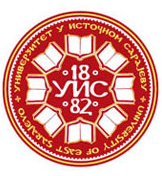
University of East Sarajevo
The University of East Sarajevo (UES) is an interdisciplinary, independent and self-governing institution, consisting of the 15 faculties and the two academies. UES has about 1,000 teachers, 10,000 students, and offer about 110 study programs at the level of Bachelor, Master, long-cycle master’s and Doctoral studies. UES has over 90 bilateral agreements signed with partner universities from Europe and the world. These bilateral agreements regulate different types of cooperation, such as work on subjects and projects of common interest, exchange of scholars and students, joint publications, exchange of information and other activities in order to improve the academic cooperation. UES is a member of several university networks and international associations (EUA, UniAdrion, Danube Rectors’ Conference). UES participated in TEMPUS projects since 2000, FP6 programmes; and other international project - such as project dealing with Brain Drain in West Balkan Countries, USAID projects, Horizon 2020, Erasmus+, World Bank programmes, and IPA projects. UES is the largest institution in the geographical area it occupies (9 towns) and possesses great human resources and infrastructural capacities. UES is first accredited HEI in Bosnia and Herzegovina (2013), and re-accreditation was done in 2019. UES got HR excellence in research code by European Commission as committed university which striving to adopt European Charter principles and Codes for employment of researchers.
Website: University of East Sarajevo
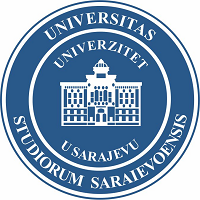
University of Sarajevo
The University of Sarajevo is the leading higher education institution in Bosnia and Herzegovina. The basic organizational structure of the University consists of the Rectorate and thirty organizational units, including twenty-two faculties, three art academies and five scientific research institutes, grouped in six groups from the fields of social sciences, humanities, medicine, natural sciences, mathematics and biotechnology, technical sciences and arts, with more than 22000 students. The University's mission can be summarized in one sentence: Let's think and shape a sustainable future together. The vision of University of Sarajevo is a place where people, aspirations, ideas, cultures and excellence meet, intertwine, complement and develop, creating a strong and cohesive force that unites the entire region and BiH. The university promotes freedom, openness, inclusion, autonomy, responsibility as well as diversity of ideas, cooperation of creativity and the process of modernization in order to become an intellectually capable and socially responsible academic community. According to the available data the University of Sarajevo participates in over 500 projects every year. Available data on all active projects show that the University of Sarajevo is the largest beneficiary of available national and international schemes for financing scientific research activities and capacity development in higher education. Almost half of the project activities at the University of Sarajevo are financed from EU funds such as Horizon Europe, COST (European Cooperation in Science and Technology) or Erasmus+ program for capacity development in higher education.
Website: University of Sarajevo
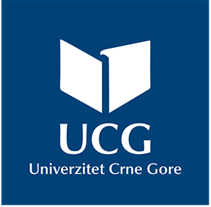
University of Montenegro
The University of Montenegro is an intellectual development of Montenegro - the center of scientific research, cultural, artistic and innovative creativity. It is the oldest and at the same time the only state university in Montenegro. It is the most comprehensive higher education institution that provides education in the fields of social sciences, humanities, as well as technological, natural and medical sciences. Classes are organized in accordance with the curricula of reputable universities in the European Higher Education Area, which, along with numerous agreements and programs, enables unhindered mobility for students, teachers and administrative staff. The studies are implemented in three cycles, undergraduate, master and doctoral studies. The model according to which they are implemented is 3 + 2 + 3, which means that undergraduate studies last for three academic years, with exception of regulated professions and teacher education that lasts for five or six years. Postgraduate master studies last two, and doctoral three academic years. In undergraduate and master studies, candidates are enrolled at the expense of the State Budget. The University of Montenegro is also a leading scientific research institution in the country, which strengthens its position through international cooperation and project activities aimed at supporting scientific research capacities. In addition to a very strong research activity in organizational units, the University also has three scientific institutes, the Institute of History, the Institute of Marine Biology and the Institute of Advanced Studies. As a central institution of science, culture and art, it continuously strengthens ties with the economic, social and international environment, through productive cooperation with business and the public sector.
Website: University of Montenegro
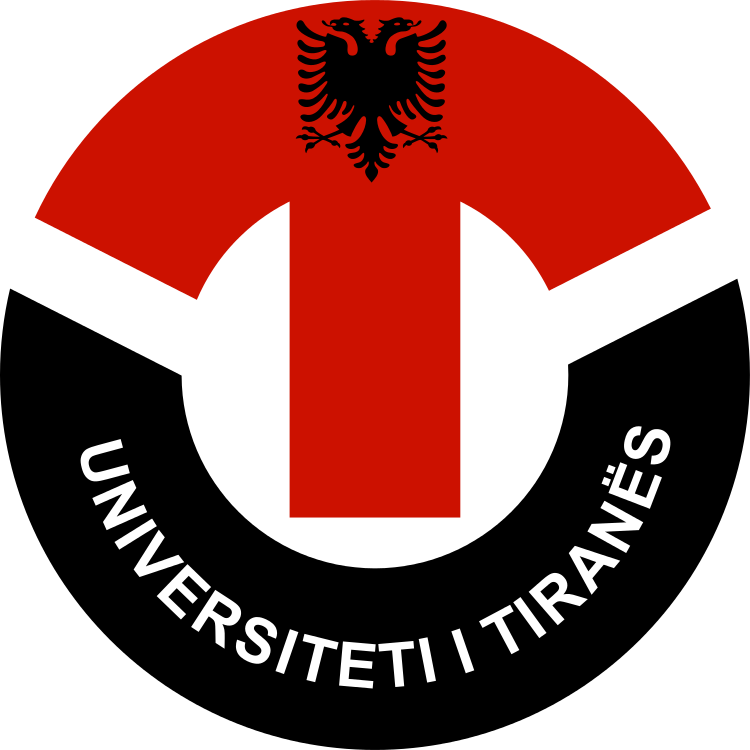
University of Tirana
University of Tirana is the largest university in the country. It consists of six faculties and two institutes and offers 155 programs in all three cycles of study, with 790 full-time academic staff and approximately 23,000 students. Thanks to its tradition, high level of qualification, training and certification, the University of Tirana remains the preferred choice for higher education studies in Albania. The Faculty of Economy (FE), established in 1952, became part of UT in 1957. Currently, the faculty operates on the basis of new teaching programs, in accordance with the programs of Western Universities, based on the Bologna declaration and adapted to the conditions of the country, offering study programs in all three cycles: Bachelor, Master and Doctorate. The Faculty of Economics has 6 departments: Department of Finance, Department of Accounting, Department of Management, Department of Marketing, Department of Economics and Department of Statistics and Applied Informatics. UT is a partner institution in several European Commission cooperation programs such as Tempus, Erasmus Mundus Action 2, IPA, respectively: Join EU-SEE, Basileus, Pacinno, Eureka, Tempus Interface. UT has also signed many cooperation agreements with various universities and institutions at national, European and world level. These framework agreements aim at academic and student exchanges, joint research programs, academic exchanges in publications, journals, organizing various conferences, etc. UT is also a member of many foreign networks such as AUF, UNICA, UNIMED, CMU, etc.
Website: University of Tirana
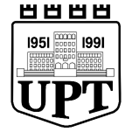
Polytechnic University of Tirana
Since its formation until today, the institution of the Polytechnic University of Tirana has known a continuous change, in harmony with the demands, the development of the Albanian society and culture. In this change, he has often been the generator and supporting factor of the creation of the history of higher education (engineering in particular), technology, innovation, economy, national culture and public life. The traditions of this University begin in 1951, with the establishment of the Higher Polytechnic Institute in Tirana which contained several major engineering branches such as the Mechanical Engineering Branch, the Electrical Engineering Branch and the Civil Engineering Branch. In 1957, the State University of Tirana was formed and an important part of it was the Faculty of Engineering consisting of: Mechanical Branch, Electrical Branch, Construction Branch and Geology-Mining Branch, in which general engineers graduated according to four relevant fields engineering. The formation of Polytechnic University of Tirana separating from the University of Tirana in 1991 made it possible to create four faculties: Mechanical Engineering, Electrical Engineering, Civil Engineering and the Faculty of Geology - Mining, on the basis of four existing branches. Currently, Polytechnic University of Tirana is the only engineering university in Albania, with a 65-year history of efforts, work, achievements and successes in meeting priority challenges related to increasing the quality level in all activities dictated by the realization of its historical mission.
Website: Polytechnic University of Tirana

Chamber of Commerce and Industry of the Republic of Srpska
Chamber of Commerce and Industry of the Republic of Srpska, as association of business subjects in the RS, represents their interest to create favorable business environment and to provide support in the process of improving competitiveness, introducing innovations and expanding internationalization. CCIRS is recognized as institution which provides support in process of competitiveness improvement for Single Market. Together with the EU, EU-GIZ ProLocal, USAID, EBRD, IFC, GIZ and other donors, government and local authorities, the Chamber provided support to more than 300 enterprises regarding support for different activities such as implementation and certification of EU standards, workforce education programs and activities regarding internationalization. One of the general goals of CCIRS is to improve competitiveness of SMEs through education and training programs, advisory services etc. Chamber provides support for improvement of international activities of SMEs trough the organization of performance at the fairs, B2B business missions, media promotion. In last five years, Chamber has organized more than 100 such promotional events. Chamber organizes permanent professional and business education, provides business advisory services with the goal to increase the economy competitiveness and to prepare clients for Single Market. In last five years, Chamber has organized more than 150 seminars and trainings with more than 2500 participants and provided consulting services for more than 100 SMEs. Chamber was active in organization of special training programs for SMEs consultants and trainers such as UNIDO Regional Business Development Centers in B&H, EUPER European Union Program for Enterprises Revitalization in B&H initiated by European Commission, "InWent", Master of Business Training - MBT, REFA trainer for production improvement, QMS consultants, FSC CoC, HACCP and etc. Through these trainings Chamber educated more than 100 consultants. CCIRS is, by its core nature, the institution with the most accurate, updated and detailed database of all business entities at the RS territory. CCIRS has created a Business Registry (www.business-rs.ba) that is a unique database of businesses in the RS. Chamber EEN staff are experts in the following fields: providing information and trainings for SMEs about EU legislation, policies, rules and conditions for doing business, information, advisory services and support in EU standards implementation and certification, connecting and providing SMEs with potential investors and potential finance, innovation consulting and cross border partnering activities for business cooperation.
Website: Chamber of Commerce and Industry of the Republic of Srpska
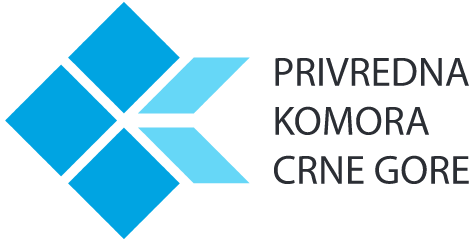
Chamber of Economy of Montenegro
Chamber of Economy of Montenegro is an independent, professional organization that associates the all commercial entities in Montenegro on mandatory basis in conformity to Law on Chamber of Economy. Chamber advocates business community interests through both legal initiatives toward government bodies and permanent dedication on introduction of standards into enterprises raising that way their competitiveness. Chamber Statute as highest constitutive act stipulates establishment of 13 sector-based Association Boards. Chamber was the first institution in Montenegro to introduce the cleaner production principles into business sector through realization of „Cleaner Production“ 11 years ago, as well as the project under the UNIDO guidance as well as the „Sustainable Tourism“ and „Low Carbon Emission“ projects. Recently, Chamber was the first institution in Montenegro to create the “Road Map for Circular Economy in Montenegro” which has been followed by establishment of the first “Innovative Hub of Circular Economy”. So far Chamber has received significant responses from industry interested in participating in the demonstration of cleaner production, energy efficiency and waste management. Chamber is capable to assist the selection of companies especially from agriculture, breweries, packaging and timber product manufacturing and contribute to completion of feasibility analyses of cleaner production options. Chamber recognizes potentials in Montenegrin economy to focus on safe and sound products that can strengthen the market for alternatives such as organic foods and fibers, low-impact appliances, solar energy technologies and bio-based technologies. Chamber helped entrepreneurs develop and update their business models through the dissemination of contemporary viewpoints and practical experiences and through the development of their management skills. Chamber has trained entrepreneurs to find opportunities for improving and developing their products by making better use of innovation, eco-oriented technologies, energy-efficient facilities, IT. Chamber supports the development of trademarks and brands. Eco-friendly technologies are also promoted in relation to the transfer of research outcomes, namely the turning of patents of know-how developed within projects into goods and services. For that purpose, the establishment and development of technology transfer entities are supported, in particular within public research institutes and universities.
Website: Chamber of Economy of Montenegro

Chamber of Economy of the Federation of Bosnia and Herzegovina
The Chamber of Economy of the Federation of Bosnia and Herzegovina (CEFBiH) was founded in November 1999 in accordance with the Law on Chambers of Economy and has retained the model of a single general Chamber. By law, it represents the interests of the entire economy of the Federation of Bosnia and Herzegovina. Like all Chambers in the European Union, it is a non-governmental, public-private association. It consists of ten cantonal Chambers. All Chambers in the Federation of Bosnia and Herzegovina are legal entities and have a broad mandate to represent and promote the economy of their region. Organizationally, through the Chamber Center for International Cooperation and EU funds, it works on the implementation of many projects financed by the European Union.
Website: Chamber of Economy of the Federation of Bosnia and Herzegovina
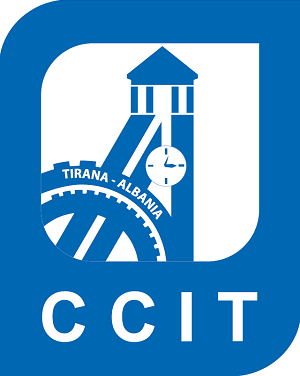
Chamber of Commerce of Tirana
The Chamber of Commerce and Industry Tirana (CCIT) is a juridical independent non-profitable organization that exercises its functions under Law No. 9640 “On the Chambers of Commerce and Industry” ratified by the Assembly of the Republic of Albania on 09.11.2006. CCIT is the most important and powerful business organization in the country. Boosting the highest membership count in Albania, CCIT has emerged as the go-to institution for businesses seeking a resolution to their concerns. To fulfill its mission, the Chamber of Commerce and Industry Tirana (CCIT) performs two significant functions: (1) The protection, support, and addressing of the economic interests of the business community it represents. It transmits the voice of business to all the central and local governing institutions. The Chamber represents the business community even in international relations, representing and establishing agreements on behalf of and for the interest of business; (2) Providing dedicated services to businesses regarding the creation of facilities for exports and business promotion, networking for business opportunities through the arrangement of meetings and missions for economic and commercial interests, and providing business matching, even about the identification of interests in new export markets. CCIT distinguishes itself among Albania's business organizations through its unwavering commitment to successful project implementation. CCIT is active in a considerable number of countries worldwide through its representation offices. Among them, the following can be mentioned: the offices in South Africa, England, Canada, China, the United States of America, Russia, Slovenia, Turkey, Spain, etc. The Chamber is also a member of bodies such as ICC, ASCAME, BSEC, etc.
Website: Chamber of Commerce of Tirana
